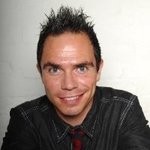
The Agency Symposium 2014 run by Ashton Media was held in the Hunter Valley, NSW, Australia on the 17-18 September. The audience represented the most influential minds in the industry and provided senior agency executives with an engaging and inspiring environment to discuss the most pressing matters facing the media and advertising industry.
This is the first of two posts adapted from a podcast (PHDcast) by Chris Stephenson, Strategy Director, PHD Media Australia at the second Annual Agency Symposium 2014. Chris is joined by ‘PHDers’ Marcus, Angela, Tara and Kate to discuss all the points of view and debates from the Symposium.
Click here to listen to the full PHDcast.
Debating the big topics of the future
Chris:
This week on the PHDcast we’re in the Hunter Valley for the Second Annual Agency Symposium. The great and good of agency and media-land have gathered to discuss and debate the big topics of the future and the present of the media industry. This is the PHDcast from PHD Australia.
Hey, I’m Chris Stephenson, and joining me on the PHDcast this week I’ve got special guests Marcus Lewis, Angela Rossi, Tara Reiner, and Kate Madden and we have been the delegates from PHD[media] at the Annual Agency Symposium event in the Hunter Valley. How did it go guys? Did we all have fun?
Marcus:
Yes it was a great…36 hours I think, maybe a bit longer.
Chris:
A whistle stop of sessions, debates, and panel sessions and we’re going to spend the next twenty minutes or so just digesting and discussing some of our highlights and also what we’re taking away from this and what we learnt from the event and from the sessions.
Angela I’ll start with you because you’re the regular here. What were some of the highlights for you from the symposium over the last two days?
We need to change the way we do things
Angela:
I think there were quite a few. It’s quite difficult to put your finger on one particular one but I loved some of the presentations. I loved the guy from Spotify who reminded me a little bit about the film ‘High Fidelity’ which is all about how, it’s not about what you are like, it’s about what you like and Spotify is very much about that. It kind of defines who you are by your musical taste and he was talking about the insight they have into people via the choices they make with their music. I loved that.
What really became apparent for me throughout the whole thing was a Woody Allen quote – “Agencies are a bit like relationships and sharks and they have to keep moving or else they’ll die and nobody wants to be a dead shark” – I think that was really apparent.
There was a mixture in the room of CEOs from media agencies, CEOs from credit agencies, lots of publishers and networks, but we all understand that we desperately need to change the way we do things because if we don’t, we will go down the route of the music industry which is essentially screwed. If we don’t want another kind of Napster happening within the advertising world we need to make sure that we don’t go down that road.
Chris:
So the big themes of disintermediation, transformation and disruption, as well as exploring and really hearing from some of the platforms that are thriving in that context and invented that context rather than being disrupted by it.
The evolving agency business model
And Tara for you, what were some of your highlights from the last two days?
Tara:
There was so much to enjoy because it was a really thorough and well encompassed symposium. Some of the things that were really fantastic for me were probably talking about the evolving agency business model and just talking about how we’re moving to value-based or time-based remuneration. I thought that was fascinating just hearing all the different themes in the room and the way they worked together better to get their outcomes for agencies and clients. I thought that was fantastic.
There was also a lot of talk in a couple of presentations about VUCA which is basically around volatility, uncertainty, complexity and ambiguity. These are one of the things that we have to navigate in the future to survive.
Obviously the futurist was fantastic because media is always based about the future because let’s face it, technology drives it. So it was really interesting just hearing all the themes there about AI and understanding cloud vision which is going to take over TV.
Chris:
And that’s cloud vision as opposed to television and that idea.
Tara:
Yes convergence. There’s always been this unbundling and now it’s re-bundling. It seems to be a theme that happens over decades, not just over five years. It’s interesting just to see a modern take on that.
Then also just really understanding that RUSP as an agency, it’s not really about being robotic and being a computer, it’s about our creativity, our story telling and those kinds of things. Our imagination that differentiates us from the pack and we shouldn’t forget that.
Collaboration and solving business problems
Chris:
Kate, what about you? This is perhaps more of a unique experience for you in an event like this. What was your experience? What was your take out?
Kate:
Definitely, I have a finance perspective on this so it was really interesting to hear from all the other agencies about agency pricing models, value versus time. We’re all stuck in a time-based system at the moment.
Perhaps we could move to a hybrid. It’s not one or the other and we need to be focusing on solving business problems. Only then we can be rewarded for the value that we’re actually adding to businesses and not get bogged down in the media. That was really interesting.
The other theme that was really interesting was the pitch process panel. We are all facing the same challenges. Maybe we are a little too focused on the RFP, the document, the tools, and the processes. We’re missing something there. There’s no denying, there is a process to pitch and you have to follow it.
Chris:
Yes, there was such a sheer optimism from those guys about pitching.
Kate:
There was collaboration as well that I found very interesting. In terms of the technology theme, the other thing that I thought was really interesting was that we as an industry should be looking for talent outside our industry to bring things in so we can keep ahead of this technology boom. Otherwise we can’t look to develop all that talent within the industry and we’re going to be missing things if we don’t look outside our own industry.
Big data and innovation
Chris:
Marcus what about you? Data analytics is your speciality. There was a wealth of conversation and discussion around big data, around platforms, around what we can do to get better validation. What were some of the highlights for you from the last two days?
Marcus:
I think the first highlight is the continued employability of data scientists in the brave new world of media. That was a theme that came across with most of the presentations. I think big data has been in every conference I’ve been to in Australia for the last three years.
It’s interesting that more or less every break-out session whether it was outside of the agency or not was about the technology and how much development there is. There’s a lot of choice out there. Probably the hardest decision people have to make is what to go with essentially. There’s a lot of debate around using one stack versus multiple platforms to deliver data solutions.
Intelligent and ethical use of data in the way that we communicate is also important so that we don’t overly annoy the general population.
The second thing that really came out was the need for innovation which would be an interesting problem for the way that agencies are set up. How do we invest in innovation? We need to stay ahead of the game when the cost of that outweighs the income, at the moment 2% of mobile budgets versus 80% usage. It’s going to be a very interesting way forward.
Understanding decoders or developers
Chris:
And just for my part and to answer my own question, I had a revelation over what a company called Decoded does. Peter’s a former ‘PHDer’ from London and setting up a company which just deconstructs code. What it is, what it does, how it works, and I was lucky enough to jump into a workshop they did yesterday and it was just amazing.
The analogy that he used was great – trying to talk to decoders or developers is like talking to an architect when you’ve never been inside a house. How can you talk to them about rooms? How can you talk to them about functionality? How can you talk to them about what you need to build when you’ve never seen the inside a house?
For these guys to open up the house and let you in so that when you do talk to an architect you can talk about what you want – I need an inside and outside space to do this, don’t use that material, I’d like it like this and this is why. Just the conversations equip you to have the perfect way of dealing with an agency. I thought that was just phenomenal and a brilliant addition and contribution to the line up.
Angela:
Also in a counter-intuitive way they are democratising that and making it more accessible. It’s not like they’re undervaluing it, they’re actually bringing more people to the party because they’re making it less scary, a less scary world. I had lots of conversations with people last night who were going, “this is now my retirement plan, I’m going to develop the new Angry Birds app because now I know how these guys do it”.
In the next post, the PHDers continue their discussions and cover the key take-outs from the Symposium that can be used and developed in organisations right now.
About Chris Stephenson - Strategy Director PHD Media Australia
For ten years Chris has explored and delivered media strategy and planning at PHD London, Vizeum UK and currently PHD Australia, where he is Strategy Director. Chris is a graduate of the UK\'s IPA Excellence Diploma, his essay promoting the value of existing customers was one of six (and the only from a media planner) to be published in Campaign magazine.

